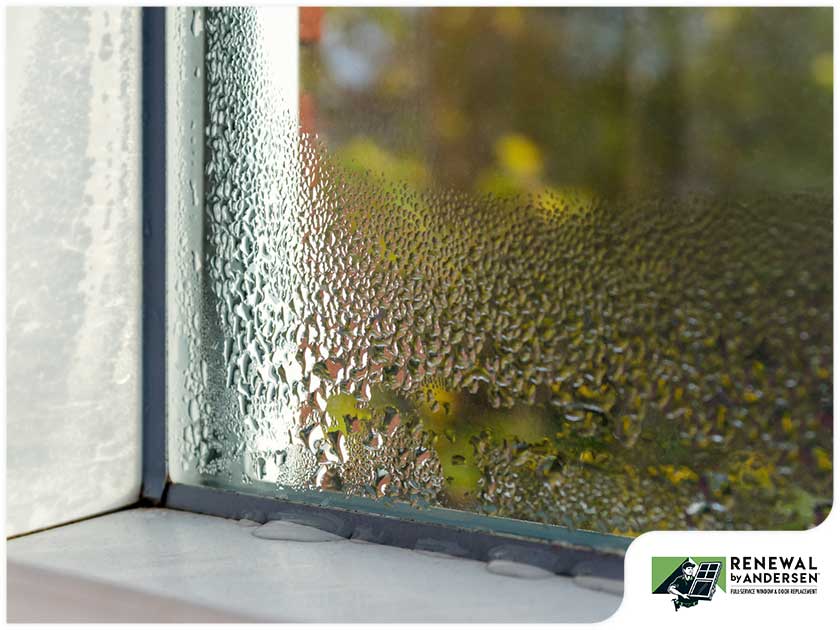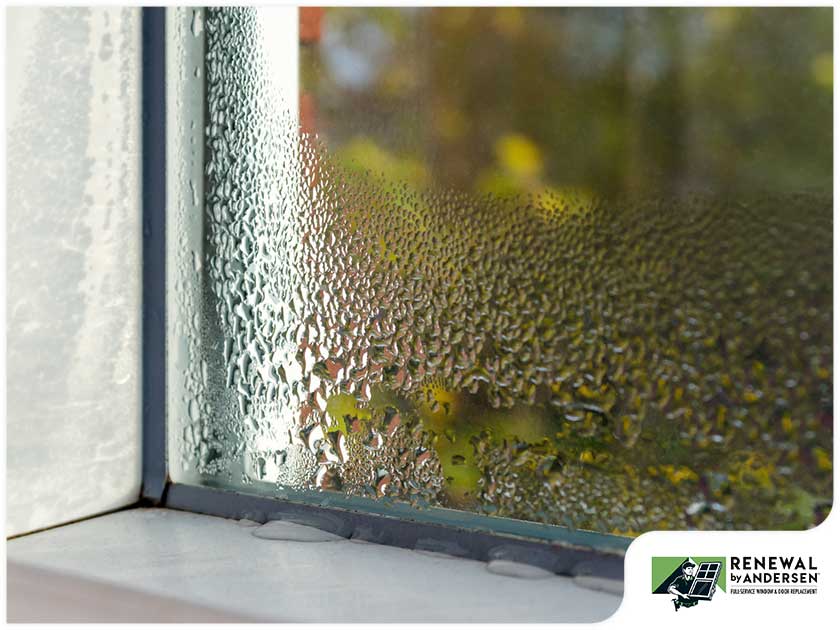MENU


Condensation is a common occurrence in windows during the winter and summer months. In the summer, when the temperature inside your home tends to be cooler than the temperature outside, you probably notice beads of sweat on the surface of your window. This is normal and does not affect the performance of your window, so you shouldn’t worry yourself.

If the surface of your window is colder than the air it comes into contact with, condensation will likely occur. The air outside your home could be very humid while your interior could be cooler than the temperature outside due to your air conditioning. So, when your window is exposed to both warm and cool temperatures, moisture tends to form on its surface and causes the window to look “sweaty.”
Generally, window condensation is not a cause for concern unless moisture has started building up. Remember that your windows are designed to resist rain and water, so a little condensation shouldn’t affect their quality or performance. But if moisture has accumulated in your windows, this could lead to serious problems that only window contractors could fix.
Take note that window condensation usually goes away on its own after some time. But in order to avoid moisture buildup and to minimize condensation during summer, you should work towards reducing the humidity inside your home. Whenever you’re cooking, make sure to turn on your exhaust fan. Your exhaust fan and your other appliances should also be able to vent outside. Lastly, don’t forget to ventilate your attic and crawl spaces.
Renewal by Andersen® of San Francisco is a reliable window contractor that will ensure all your needs are met. With our fully trained and experienced team, we will deliver quality results for your project. Call us at (866) 609-5033, or fill out our contact form to request a free estimate. We serve customers in San Francisco and the surrounding areas.